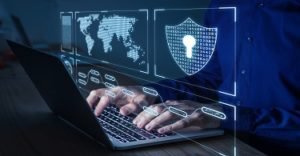Cloud, blockchain and IoT are among the technological developments expected to bring disruptive breakthroughs and commercial possibilities in the next five years. The future of technology will be ubiquitous smart gadgets that deliver numerous intimate services based on big data. Analysts believe that there are trends covered by the following three points that will bring a continuous increase in innovation:
- Intuitive: AI will pervade all current vertical sectors while also spawning new ones.
- Digital: The physical and digital worlds will converge, resulting in a new "immersive" environment.
- Mesh: A growing network will connect people, companies, equipment, content, and services.
Continue reading to discover more about Blockchain online training, Software engineer courses are technological trends for the reference of technology entrepreneurs, and how IoT, AI, and blockchain will revolutionize business.
Autonomous stuff - Intelligent devices
The use of artificial intelligence technology to substitute equipment for people to execute activities is referred to as autonomous objects. This category includes autonomous vehicles, robots, drones, intelligent apps, and automated agents. Land, water, atmosphere, and the digital world are all covered by these five types of equipment. Drones and agricultural robots can collaborate in the field to fulfill agricultural activities, for example, using five types of applications and four dimensions to entangle a number of options. Gartner predicts that in the future, every IoT application, service, or device will have some level of intelligence. While there is debate over whether such gadgets may be classified as "smart," it is evident that artificial intelligence technology improves their capacity to interact with the environment, coordinate, and analyze data.
People should keep looking at the prospect of integrating AI technology into real-world enterprises and products. However, it's worth mentioning that this sort of technology is now limited to a few specialized activities and lacks the overall decision-making capabilities, much alone intelligence, of the human brain.
AI-driven development
The market is rapidly evolving. The first way prevailed: most AI-enhanced solutions require collaboration between professional data scientists and application software developers; but, this model is currently popular: professional developers may use it alone as a pre-defined model offered for each service. This gives developers access to an ecosystem of AI algorithms and models, as well as specialized development tools for incorporating AI functions and models into solutions. Professional application software development confronts a new set of opportunities as AI is employed in the development process to automate different data science, application software development, and testing operations.
Blockchain
Blockchain is a distributed ledger that has the potential to transform all aspects of life because it can establish trust, give transparency, and eliminate friction within company ecosystems, lowering costs, boosting cash flow, and reducing transaction settlement times. People now rely on central authorities such as banks, clearinghouses, governments, and a variety of other organizations. Their databases securely maintain the " only version of reality." The centralized trust model introduces delays and frictional costs to the transaction (money’s value in time, fees, and commissions). Without the requirement for a central entity to arbitrate transactions, blockchain enables another manner of trust.
Many current blockchain initiatives do not include all the features of blockchain, such as a massively spread database. These solutions inspired by blockchain are only a technique of increasing functioning productivity by automating corporate procedures or keeping digital documents. They are intended to increase information transmission between known entities and improve physical and digital asset tracking and tracing.
These solutions, on the other hand, ignore the true value of blockchain subversion, thus increasing the danger of vendor lock-in. Companies who adopt this option ought to be aware of the limits and be ready to gradually implement the blockchain solution. They should also be aware that they can achieve the same results using existing non-blockchain technologies more efficiently and effectively.
Conclusion
Visit Imarticus today to discover all our Blockchain online training and Software engineer courses offered via our SCIB courses and become part of how IoT, AI, and blockchain will revolutionize business.










